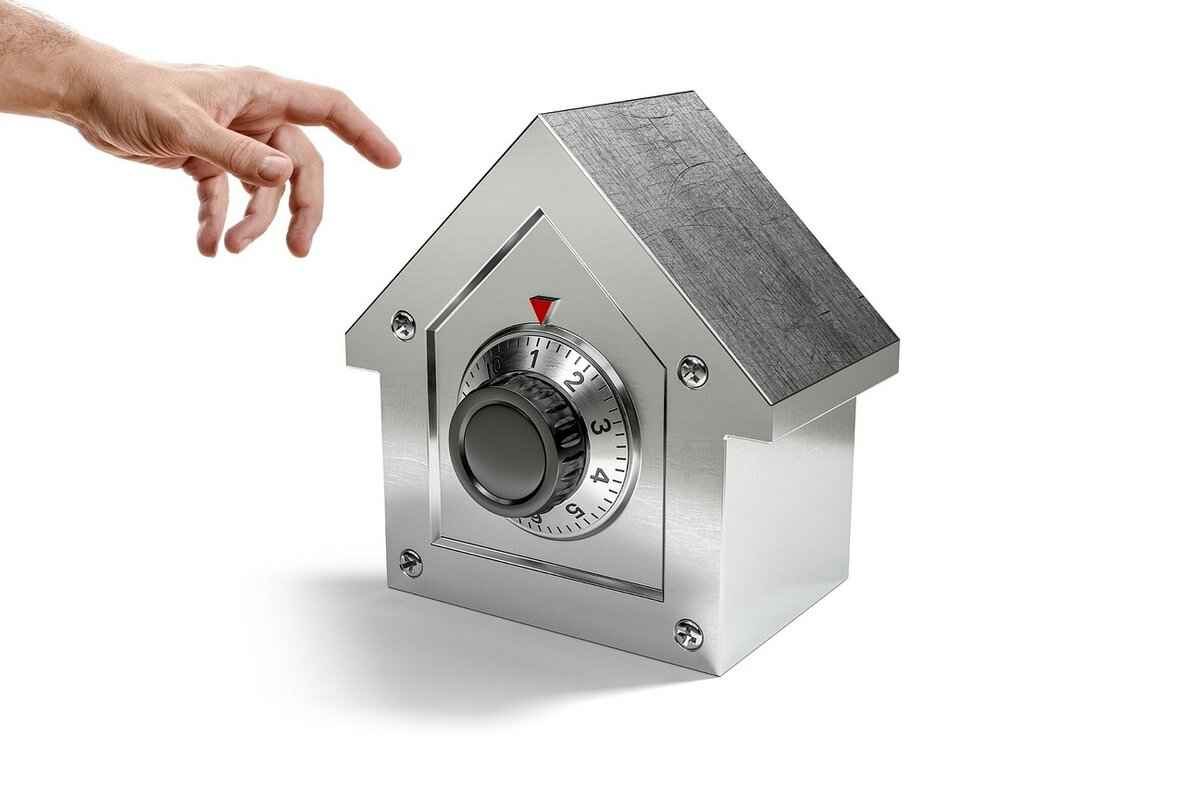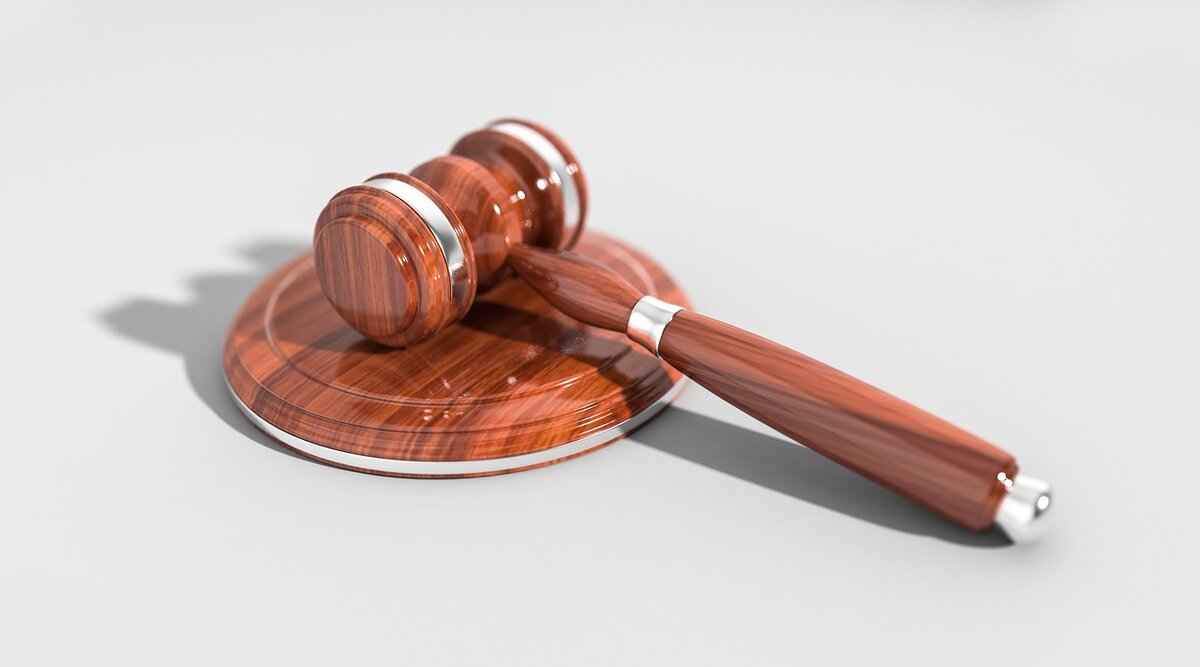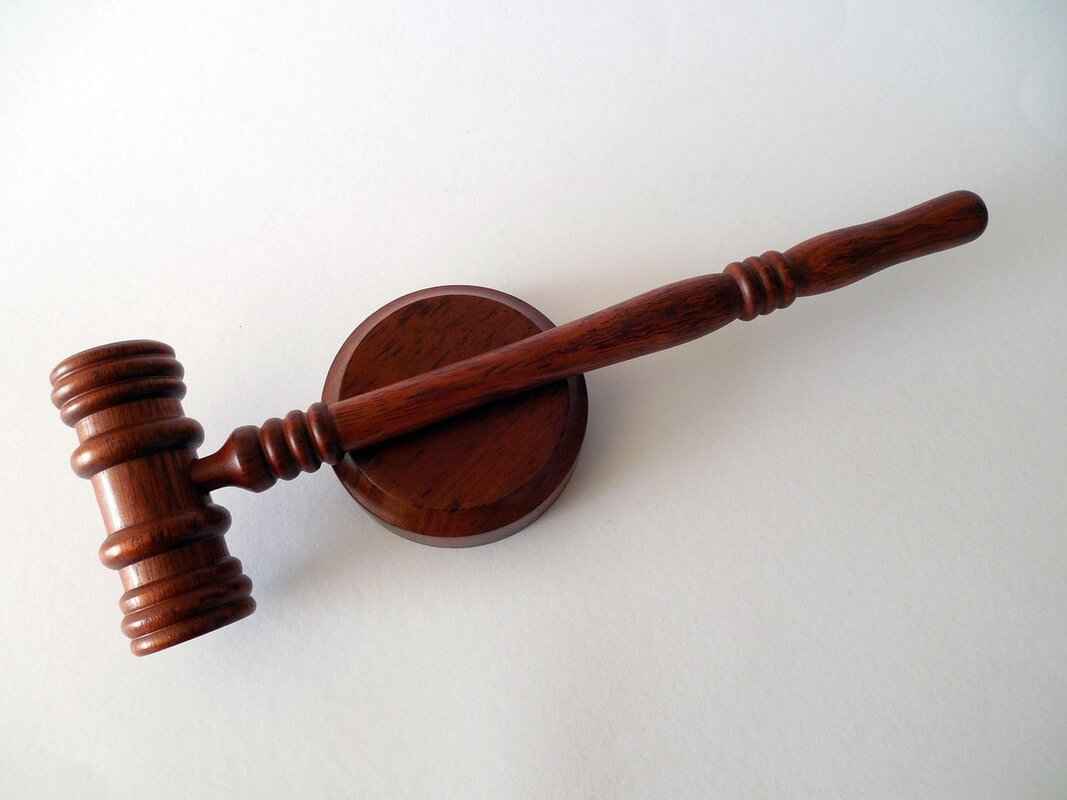This article provides a comprehensive guide on the steps to take if you suspect your attorney is engaging in fraudulent behavior. It covers how to identify signs of fraud and outlines the legal recourse options available to you.
Understanding Legal Fraud
Legal fraud occurs when an attorney misrepresents facts or engages in deceptive practices that can harm clients. It is crucial to recognize the signs of fraud early to protect your rights and interests. Fraud can manifest in various ways, including manipulation of case facts, billing irregularities, or failure to act in your best interest.
Signs Your Lawyer May Be Committing Fraud
- Unexplained Fees and Charges: If you notice fees that appear excessive or unjustified, this may indicate fraudulent activity. Always ask for an itemized bill to clarify any discrepancies.
- Lack of Communication: A sudden decrease in communication from your lawyer can be a significant red flag. Attorneys are expected to maintain regular contact regarding case developments and respond to your inquiries promptly.
Gathering Evidence of Fraud
Documenting your concerns is essential in building your case. Collect emails, bills, and any other relevant information that may support your claims of fraudulent behavior.
- Keeping Detailed Records: Maintain a comprehensive record of all interactions with your lawyer, including dates, times, and the nature of discussions. This documentation can be vital in proving your case.
- Collecting Relevant Documents: Request copies of all documents related to your case, including contracts, court filings, and correspondence. These can help identify any discrepancies or fraudulent actions.
Consulting with Another Attorney
If you suspect fraud, seeking a second opinion from another attorney can provide clarity and guidance on how to proceed with your concerns. An experienced attorney can assess the situation objectively and advise you on the best course of action.
Reporting Fraud to the Bar Association
If you have substantial evidence of fraud, consider reporting your lawyer to the state bar association. They regulate attorney conduct and can investigate your claims. Understanding the complaint process is crucial for effective navigation.
- Understanding the Complaint Process: Filing a complaint with the bar association involves specific steps, including gathering evidence and submitting your claims formally. Familiarizing yourself with this process can enhance your chances of a successful outcome.
- Potential Outcomes of Reporting: If your lawyer is found guilty of fraud, the bar association may impose sanctions, including suspension or disbarment. Knowing the potential outcomes can help you understand the gravity of the situation.
Exploring Legal Recourse Options
If you have suffered damages due to your lawyer’s fraudulent actions, you may have legal recourse. Understanding your options can help you seek restitution effectively.
- Filing a Lawsuit for Legal Malpractice: In some cases, you may need to file a legal malpractice lawsuit against your attorney. Understanding the legal requirements and potential challenges is essential before proceeding.
- Seeking Compensation for Damages: If you can prove that your lawyer’s fraud caused you financial harm, you may be entitled to compensation. Evaluating your losses can help you determine the amount to seek.
Taking action against a fraudulent attorney can be daunting, but being informed and prepared can empower you to protect your rights. Always consult with legal professionals who can guide you through this challenging process.

Understanding Legal Fraud
is essential for anyone involved in legal proceedings. Legal fraud occurs when an attorney intentionally misrepresents facts or engages in deceptive practices that harm the client. It is vital to recognize the signs of fraud early to protect your rights and interests effectively.
Legal fraud can manifest in various ways, and being aware of these can help you safeguard your interests. Below are some common forms of legal fraud:
- Misrepresentation of Facts: Attorneys must provide accurate information about your case. If you discover that your lawyer has knowingly misrepresented facts, this could be a clear indication of fraud.
- Deceptive Billing Practices: Unexplained fees or sudden increases in charges without justification can signal fraudulent behavior. Always request an itemized bill to clarify any discrepancies.
- Failure to Communicate: A lawyer who suddenly becomes unresponsive or fails to update you on your case’s status may be engaging in unethical practices.
- Refusal to Share Documents: If your attorney is reluctant to provide you with important documents related to your case, it may indicate an attempt to hide fraudulent actions.
Recognizing these warning signs is crucial for protecting yourself. If you suspect your attorney is committing fraud, consider taking the following steps:
Being vigilant can help you spot warning signs early. Here are some indicators that may suggest your lawyer is engaging in fraudulent behavior:
- Unexplained Fees and Charges: If your attorney is charging fees that seem excessive or unjustified, it may indicate fraudulent activity. Always request an itemized bill to clarify any discrepancies.
- Lack of Communication: A sudden drop in communication from your lawyer can be a red flag. Attorneys should maintain regular contact regarding case developments and respond to your inquiries promptly.
Documenting your concerns is essential. Collect emails, bills, and any other relevant information that may support your claims of fraudulent behavior. Keeping detailed records can be vital in proving your case.
- Keeping Detailed Records: Maintain a comprehensive record of all interactions with your lawyer, including dates, times, and the nature of discussions. This documentation can be vital in proving your case.
- Collecting Relevant Documents: Request copies of all documents related to your case. This includes contracts, court filings, and correspondence, which can help identify any discrepancies or fraudulent actions.
If you suspect fraud, seeking a second opinion from another attorney can provide clarity and guidance on how to proceed with your concerns. An experienced attorney can help you assess the situation and advise you on your options.
If you have substantial evidence of fraud, consider reporting your lawyer to the state bar association. They are responsible for regulating attorney conduct and can investigate your claims.
- Understanding the Complaint Process: Filing a complaint with the bar association involves specific steps. Familiarizing yourself with this process can help you navigate it effectively and ensure your concerns are addressed.
- Potential Outcomes of Reporting: The bar association may impose sanctions, including suspension or disbarment, if your lawyer is found guilty of fraud. Knowing the potential outcomes can help you understand the severity of the situation.
If you have suffered damages due to your lawyer’s fraudulent actions, you may have legal recourse. Exploring your options can help you seek restitution.
- Filing a Lawsuit for Legal Malpractice: In some cases, you may need to file a legal malpractice lawsuit against your attorney. Understanding the legal requirements and potential challenges is essential before proceeding.
- Seeking Compensation for Damages: If you can prove that your lawyer’s fraud caused you financial harm, you may be entitled to compensation. Evaluating your losses can help you determine the amount to seek.

Signs Your Lawyer May Be Committing Fraud
When you hire a lawyer, you trust them to act in your best interests and uphold the law. Unfortunately, there are instances where attorneys may engage in fraudulent behavior, putting your case and finances at risk. Understanding the signs of legal fraud is essential for protecting yourself and your interests. Below, we explore some common indicators that your lawyer may not be acting ethically.
- Unexplained Fees and Charges: One of the most alarming signs of potential fraud is receiving fees that are unclear or seem excessive. If your attorney provides vague billing statements or charges for services you did not authorize, this should raise a red flag. Always request an itemized bill to clarify any discrepancies and ensure that you are being charged fairly.
- Lack of Communication: A sudden drop in communication can indicate that your lawyer is not managing your case properly or may be hiding something. Attorneys are obligated to keep their clients informed about case developments. If you find it difficult to reach your lawyer or receive delayed responses, it may signal an issue.
- Refusal to Share Important Documents: If your lawyer is unwilling to provide you with copies of important case documents, such as contracts, court filings, or correspondence, this could be a sign of fraudulent activity. Transparency is crucial in the attorney-client relationship, and your lawyer should be open to sharing relevant information.
- Inconsistent Information: If your attorney provides conflicting information about your case or their actions, this inconsistency should not be overlooked. It may indicate that they are not being truthful or are misrepresenting facts to you.
- Pressure to Make Quick Decisions: If your lawyer is pressuring you to make quick decisions without allowing you adequate time to consider your options, this could be a tactic to manipulate you. A reputable attorney will encourage you to weigh your choices carefully.
Being vigilant about these warning signs can help you identify potential fraud early. If you suspect your lawyer is engaging in unethical practices, it is crucial to document your concerns and gather evidence. This includes keeping records of all communications, billing statements, and any other relevant information that may support your claims.
Furthermore, consulting with another attorney can provide you with clarity and guidance on how to proceed. A second opinion can help you understand your options and the best course of action. If you have substantial evidence of fraud, consider reporting your lawyer to the state bar association, which is responsible for regulating attorney conduct.
In summary, recognizing the signs of legal fraud is essential for protecting your rights and interests. By staying informed and vigilant, you can take proactive steps to address any potential issues with your attorney.
Unexplained Fees and Charges
When dealing with legal matters, it is essential to have trust in your attorney’s integrity and professionalism. However, if you begin to notice , it may raise concerns about potential fraudulent activity. Understanding how to address these issues is crucial for protecting your rights and ensuring you receive fair representation.
It is not uncommon for attorneys to charge fees for their services, but when those fees appear excessive or lack clear justification, it is time to take action. An attorney should provide a transparent breakdown of their charges, detailing the work performed and the time spent on each task. If you receive a bill that seems inflated or includes charges you do not recognize, this could be a warning sign.
Whenever you encounter discrepancies in billing, your first step should be to request an itemized bill. An itemized invoice should clearly outline:
- The nature of each service provided
- The time spent on each service
- The hourly rate charged
- Any additional costs or expenses incurred
By examining this detailed breakdown, you can better understand the legitimacy of the charges and identify any areas that may require further clarification.
If you find that the itemized bill still does not resolve your concerns, it is important to communicate with your attorney directly. Schedule a meeting or send an email outlining your questions about the charges. A reputable attorney should be willing to discuss their billing practices and provide satisfactory answers to your inquiries.
Keep a detailed record of all communications regarding billing issues. Document dates, times, and the content of conversations, as this information may be valuable if you need to escalate your concerns later. This evidence can support your claims if you choose to pursue legal action or file a complaint.
If your concerns remain unresolved after discussing them with your attorney, consider seeking a second opinion from another legal professional. A different attorney can provide an unbiased perspective on your situation and help you determine whether the fees you are being charged are reasonable or indicative of fraud.
As a client, you have the right to question any charges that seem unreasonable. Familiarize yourself with the ethical guidelines set forth by your state bar association, as these rules govern attorney billing practices. Knowing your rights can empower you to take action if you believe your attorney is engaging in fraudulent behavior.
If you gather sufficient evidence that suggests your attorney is committing fraud, you may need to report them to your state bar association. This organization is responsible for regulating attorney conduct and can investigate your claims. Filing a complaint involves specific steps, so be sure to follow the outlined procedures to ensure your concerns are addressed effectively.
If your attorney is found guilty of fraudulent practices, the bar association may impose sanctions, including suspension or disbarment. Understanding these potential outcomes can help you grasp the seriousness of the situation and the importance of reporting unethical behavior.
In conclusion, being vigilant about is essential in maintaining a healthy attorney-client relationship. By taking proactive steps such as requesting itemized bills, documenting your interactions, and seeking second opinions, you can protect your interests and ensure that you receive the legal representation you deserve.
Lack of Communication
When you hire an attorney, you expect them to be your advocate, guiding you through legal processes with professionalism and transparency. However, a sudden drop in communication from your lawyer can be a significant warning sign. Regular updates about your case are not just a courtesy; they are a fundamental part of the attorney-client relationship. If your lawyer is unresponsive or fails to provide necessary information, it can indicate deeper issues.
Importance of Regular Communication
Attorneys are obligated to keep their clients informed about the progress of their cases. This includes updates on court dates, filings, and any developments that may affect the outcome. If your lawyer becomes uncommunicative, it may raise concerns about their commitment to your case. Regular communication is essential for building trust and ensuring that you are aware of your rights and options.
Recognizing the Signs of Communication Breakdown
- Delayed Responses: If your lawyer takes an unusually long time to respond to emails or phone calls, it could be a red flag.
- Lack of Updates: Not receiving updates on your case, especially after significant events, can indicate negligence.
- Inconsistent Information: If the information you receive is sporadic or contradicts previous communications, it may suggest disorganization or dishonesty.
Why Lack of Communication is Concerning
A failure to communicate effectively can lead to misunderstandings and mismanagement of your case. It can also result in missed deadlines, which could jeopardize your legal standing. Furthermore, if you have concerns about your lawyer’s actions, a lack of communication can leave you feeling isolated and uncertain about your options.
Steps to Take If You Experience Communication Issues
- Document Everything: Keep a detailed record of all interactions with your lawyer, including dates, times, and the content of discussions. This documentation can be crucial if you need to take further action.
- Address the Issue Directly: Consider reaching out to your attorney to express your concerns. A direct conversation may clarify misunderstandings and prompt them to improve communication.
- Consult Another Attorney: If communication does not improve, seeking a second opinion from another lawyer can provide valuable insights and options moving forward.
When to Escalate Your Concerns
If your attorney’s lack of communication persists despite your efforts to address it, you may need to consider more formal actions. Reporting your lawyer to the state bar association can be a necessary step if you suspect that their behavior is unethical or unprofessional. The bar association can investigate your claims and take action if warranted.
Conclusion
In the attorney-client relationship, communication is key. If you notice a sudden drop in communication from your lawyer, it is essential to take it seriously. By recognizing the signs of communication breakdown and taking proactive steps, you can protect your interests and ensure that your legal matters are handled appropriately.

Gathering Evidence of Fraud
is a critical step in addressing concerns about unethical behavior by your attorney. When you suspect that your lawyer may be engaging in fraudulent activities, it is imperative to take action swiftly and methodically. This section outlines the importance of documenting your concerns and provides practical steps you can follow to gather the necessary evidence.
Documenting your concerns is essential. You should collect emails, bills, and any other relevant information that may support your claims of fraudulent behavior. Having a well-organized collection of evidence can significantly strengthen your position should you decide to take further action.
- Emails and Correspondence: Retain all communications with your lawyer. This includes emails, text messages, and any written correspondence. Pay attention to any inconsistencies in their messages, as these can indicate deceptive practices.
- Billing Statements: Review all invoices and billing statements carefully. Look for unexplained fees or charges that do not align with the services rendered. Request itemized billing to clarify any discrepancies.
- Contracts and Agreements: Keep copies of all contracts and agreements you signed with your attorney. These documents can provide insight into the terms of your relationship and the services you were supposed to receive.
- Case Files: Request copies of all documents related to your case, including court filings and evidence submitted on your behalf. This will help you identify any potential misrepresentations or omissions.
In addition to collecting documents, it is vital to maintain detailed records of your interactions with your lawyer. Keeping a log of all meetings, phone calls, and discussions can provide crucial context to your claims. Note the dates, times, and topics discussed, as this information can be invaluable if you need to escalate your concerns.
Furthermore, consider creating a timeline of events related to your case. This visual representation can help you identify patterns of behavior that may indicate fraud. For example, if your lawyer has consistently failed to meet deadlines or has provided conflicting information, these patterns can serve as evidence of misconduct.
Once you have gathered sufficient evidence, it may be beneficial to consult with another attorney. A second opinion can provide clarity on your situation and help you understand your options moving forward. They can also guide you on the best way to present your evidence if you decide to report your lawyer to the state bar association.
In conclusion, gathering evidence of fraud requires diligence and attention to detail. By systematically collecting relevant documents and maintaining thorough records of your interactions, you can build a strong case to support your claims. This proactive approach not only protects your rights but also empowers you to take informed actions against unethical practices.
Keeping Detailed Records
When dealing with legal matters, maintaining a comprehensive record of all interactions with your lawyer is crucial. This practice not only helps you stay organized but also serves as a vital resource should any issues arise regarding your attorney’s conduct. Here, we will delve into the importance of keeping detailed records and how this documentation can aid in proving your case.
Keeping meticulous records can significantly impact the outcome of your legal situation. Firstly, it provides a clear timeline of events, which can be beneficial when addressing any disputes. By documenting dates, times, and the nature of discussions, you create a factual basis that can support your claims and protect your interests.
- Meetings and Phone Calls: Always note the date, time, and duration of meetings or phone calls with your lawyer. Summarize the main points discussed, decisions made, and any follow-up actions required.
- Email Correspondence: Keep copies of all emails exchanged with your attorney. This includes inquiries, responses, and any attachments that were shared.
- Billing Statements: Regularly review and document all invoices. If you notice any discrepancies or unexplained charges, make a note of them for future reference.
- Documents Received: Maintain a record of all documents your lawyer provides, including contracts, court filings, and any other relevant paperwork.
Having a well-organized record can offer several advantages:
- Evidence of Communication: If disputes arise regarding what was discussed or agreed upon, your records can serve as evidence, helping to clarify misunderstandings.
- Accountability: Detailed records hold both you and your lawyer accountable. This transparency can foster a better working relationship and ensure that both parties are on the same page.
- Legal Protection: In the unfortunate event that you need to take legal action against your attorney, having comprehensive documentation can significantly strengthen your case.
To make the most of your documentation, consider the following organizational tips:
- Create a Dedicated Folder: Whether physical or digital, having a specific folder for your legal documents can make retrieval easier.
- Use a Spreadsheet: A spreadsheet can help you track interactions efficiently. Include columns for dates, times, discussion topics, and follow-up actions.
- Regular Updates: Make it a habit to update your records immediately after each interaction. This practice ensures that no details are overlooked.
In summary, keeping detailed records of your interactions with your lawyer is not just a good practice; it is a fundamental aspect of protecting your legal rights. By documenting every conversation, email, and document, you create a comprehensive resource that can prove invaluable should any issues arise. Remember, the more organized and detailed your records are, the better positioned you will be to address any concerns and safeguard your interests.
Collecting Relevant Documents
When you find yourself in a situation where you suspect your lawyer may be engaging in fraudulent behavior, one of the most critical steps you can take is . This process not only helps you understand the details of your case but also serves as a foundation for any claims you may wish to pursue against your attorney.
Requesting Copies of Essential Documents
It is essential to request copies of all documents related to your case. This includes:
- Contracts: Review any agreements you have signed with your attorney, as these documents outline the scope of services and fees.
- Court Filings: Obtain copies of all pleadings, motions, and other filings submitted on your behalf to understand the legal strategies employed.
- Correspondence: Collect emails, letters, and any other forms of communication between you and your lawyer. This can reveal inconsistencies or lack of transparency.
Gathering these documents is vital for identifying discrepancies or potential fraudulent actions. For example, if you notice that the court filings do not align with what your lawyer has communicated to you, it may be a sign of misconduct.
Understanding the Importance of Documentation
Having a comprehensive set of documents can significantly bolster your case. It allows you to:
- Verify Claims: Cross-check what your lawyer has told you against the actual documents.
- Establish Patterns: Look for any consistent issues or irregularities over time that may indicate fraudulent behavior.
- Support Legal Action: If you decide to file a complaint or seek legal recourse, having concrete evidence is crucial.
How to Request Documents
When requesting these documents, be clear and concise in your communication. Here are some tips:
1. Write a formal letter or email to your attorney.2. Specify the documents you are requesting.3. Include a deadline for when you expect a response.4. Keep a copy of all correspondence for your records.
Be persistent but professional; if your lawyer is unresponsive, consider escalating the matter. You have the right to access your case files, and your attorney is obligated to provide them.
Legal Implications of Withholding Documents
If your attorney refuses to provide the requested documents, this could be a serious red flag. Under the rules of professional conduct, attorneys are required to cooperate with their clients and provide access to case-related information. If you face resistance, it may indicate potential fraud or malpractice.
Consulting with Another Attorney
After collecting the relevant documents, it may be beneficial to consult with another attorney. They can offer an objective perspective on your situation and help you understand the implications of the documents you’ve gathered. This second opinion can be invaluable in determining your next steps.
In conclusion, collecting relevant documents is a fundamental step in addressing concerns about your lawyer’s conduct. By being proactive and thorough in your documentation efforts, you can better protect your rights and interests.

Consulting with Another Attorney
If you find yourself in a situation where you suspect that your lawyer may be engaging in fraudulent activities, it is crucial to take the appropriate steps to protect your interests. One of the most effective actions you can take is . This approach not only provides you with clarity but also equips you with the guidance necessary to navigate your concerns effectively.
When you seek a second opinion, you gain access to a fresh perspective on your situation. A different attorney can review your case details and assess whether there are legitimate grounds for your suspicions. This process can help you understand the severity of the situation and the potential implications for your legal standing.
Here are some key advantages of consulting with another attorney:
- Objective Assessment: A new attorney can offer an unbiased evaluation of your current lawyer’s actions, helping you identify any misconduct.
- Legal Expertise: Different attorneys may have varying areas of expertise. Consulting with someone who specializes in legal malpractice or ethics can provide valuable insights.
- Strategic Guidance: An experienced attorney can help you understand your options moving forward, including how to address your concerns with your current lawyer or pursue legal action if necessary.
- Support in Documentation: A second attorney can assist you in gathering and organizing evidence that supports your claims, strengthening your position.
It is essential to approach this consultation with all relevant documents and correspondence. This includes contracts, billing statements, and any communication that raises red flags. By providing comprehensive information, you enable the new attorney to give you the most accurate advice possible.
Furthermore, during your consultation, be open and honest about your concerns. Discuss any specific incidents or behaviors that have led you to suspect fraud. This transparency allows the attorney to evaluate your situation thoroughly and offer tailored advice.
In addition to seeking a second opinion, you may also consider discussing your concerns with trusted friends or family members who have had experience with legal matters. Their insights can further inform your decision-making process.
Ultimately, the goal of consulting with another attorney is to empower yourself with knowledge and options. If your suspicions are confirmed, you will be better prepared to take the necessary steps to protect your rights. If your concerns are unfounded, you can proceed with confidence in your current legal representation.
In summary, if you suspect your lawyer is committing fraud, consulting with another attorney is a prudent step. This action not only clarifies your situation but also provides you with the necessary tools to address your concerns effectively. Remember, taking proactive measures is key to safeguarding your legal interests.

Reporting Fraud to the Bar Association
If you suspect that your lawyer is engaging in fraudulent activities, it is crucial to take action promptly. Reporting your attorney to the state bar association is an essential step in addressing these concerns. The bar association plays a vital role in regulating attorney conduct and ensuring that legal professionals adhere to ethical standards.
Understanding the Role of the Bar Association
The state bar association is responsible for overseeing the behavior of attorneys within its jurisdiction. They investigate complaints against lawyers and can impose disciplinary measures if misconduct is confirmed. This can range from reprimands to suspension or even disbarment, depending on the severity of the fraud.
When to Report Your Lawyer
Consider filing a complaint if you have substantial evidence of fraud. This evidence may include:
- Unexplained fees: If your lawyer has charged you excessive or unjustified fees without clear explanations.
- Failure to communicate: A significant drop in communication or refusal to provide updates on your case.
- Document discrepancies: Any inconsistencies in the documents provided by your attorney.
Gathering Evidence Before Filing a Complaint
Before approaching the bar association, it is essential to compile a comprehensive set of evidence to support your claims. This may include:
- Emails and correspondence: Keep copies of all communications with your lawyer.
- Billing statements: Request itemized bills to clarify any questionable charges.
- Case documents: Collect all relevant documents related to your case, including contracts and court filings.
How to File a Complaint
Filing a complaint with the bar association typically involves several steps:
- Visit the bar association’s website: Most state bar associations provide online resources and forms for filing complaints.
- Complete the complaint form: Provide detailed information about your lawyer and the nature of your complaint.
- Attach supporting evidence: Include all relevant documentation that substantiates your claims.
- Submit your complaint: Follow the submission guidelines provided by the bar association.
What Happens After You File a Complaint?
Once your complaint is submitted, the bar association will review the information provided. They may reach out to you for additional details or clarification. The investigation process can vary in length, depending on the complexity of the case. During this time, it is essential to remain patient and responsive to any inquiries from the bar association.
Potential Outcomes of Reporting
If the bar association finds sufficient evidence of fraud, they may take disciplinary action against your lawyer. Possible outcomes include:
- Reprimand: A formal warning issued to the attorney.
- Suspension: Temporary removal of the attorney’s license to practice law.
- Disbarment: Permanent revocation of the attorney’s license.
Exploring Further Legal Options
If you have suffered damages due to your lawyer’s fraudulent actions, it may be necessary to explore additional legal recourse. This could involve:
- Consulting another attorney: Seek a second opinion to understand your options better.
- Filing a lawsuit: In some cases, you may need to pursue a legal malpractice lawsuit against your former attorney.
By taking these steps, you can protect your interests and ensure that your concerns are addressed appropriately. Remember, the bar association is there to uphold the integrity of the legal profession and to assist clients like you in seeking justice.
Understanding the Complaint Process
When you find yourself in a situation where you suspect your lawyer may be engaging in fraudulent behavior, it can be a distressing and confusing experience. Understanding the complaint process with the bar association is a crucial step in addressing your concerns and seeking resolution. This article outlines the essential steps involved in filing a complaint, ensuring that you are well-equipped to navigate this process effectively.
Filing a complaint with the bar association involves several specific steps. Familiarizing yourself with these steps can help you present your case clearly and ensure your concerns are taken seriously. Below, we delve into each stage of the complaint process.
- Step 1: Determine the Grounds for Your Complaint
- Misappropriation of funds
- Fraudulent behavior
- Negligence in handling your case
- Failure to communicate effectively
- Step 2: Gather Evidence
- Emails and correspondence with your lawyer
- Billing statements and invoices
- Contracts and agreements
- Notes from meetings or phone calls
- Step 3: Research Your State’s Bar Association Procedures
- Step 4: Complete the Complaint Form
- Provide clear and concise details of your allegations
- Attach any supporting evidence
- Sign and date the form as required
- Step 5: Submit Your Complaint
- Step 6: Follow Up
Before filing a complaint, it’s important to understand the basis of your concerns. Common grounds for complaints include:
Documenting your concerns is essential. Collect all relevant materials, such as:
Having thorough documentation will strengthen your case when presenting it to the bar association.
Each state has its own procedures for filing complaints. Visit your state bar association’s website to find specific guidelines and required forms. Understanding these details can save you time and ensure your complaint is filed correctly.
Most bar associations require you to fill out a formal complaint form. Be sure to:
Submit your completed complaint form to the appropriate office within the bar association. This can often be done online, by mail, or in person, depending on the state’s regulations.
After submitting your complaint, you may want to follow up with the bar association to ensure it has been received and is being processed. Be prepared for the possibility of an investigation, which may take time.
Throughout this process, it’s essential to maintain a detailed record of your interactions with the bar association, including dates, names of representatives, and any correspondence related to your complaint.
Filing a complaint with the bar association is an important step in addressing your concerns about your lawyer’s conduct. By understanding the complaint process and preparing thoroughly, you can advocate for your rights and seek the resolution you deserve.
Potential Outcomes of Reporting
When you suspect that your lawyer is engaging in fraudulent practices, it is crucial to understand the potential outcomes of reporting such behavior. Legal fraud can have severe consequences not only for the lawyer involved but also for the clients affected. This section will delve into the implications of reporting your lawyer to the bar association and what you can expect from the process.
The state bar association plays a vital role in regulating the conduct of attorneys. They are responsible for ensuring that lawyers adhere to ethical standards and legal obligations. If a lawyer is found guilty of fraud, the bar association has the authority to impose various sanctions to protect the public and maintain the integrity of the legal profession.
When a lawyer is found guilty of fraudulent behavior, the bar association may impose a range of sanctions, including:
- Suspension: This temporary measure can last from a few months to several years, during which the lawyer is prohibited from practicing law.
- Disbarment: This is the most severe outcome, resulting in the lawyer’s permanent removal from the bar. Disbarment is typically reserved for the most egregious offenses.
- Reprimands: A formal reprimand may be issued for less severe violations, serving as a warning to the attorney.
The severity of the sanctions imposed by the bar association often depends on several factors:
- Nature of the Fraud: The type and extent of fraudulent behavior can significantly impact the outcome. For example, financial fraud involving large sums may lead to harsher penalties.
- Prior Disciplinary History: If the lawyer has a history of previous violations, this may result in more severe sanctions.
- Cooperation with Investigations: Attorneys who cooperate fully with investigations may receive more lenient sanctions.
Once a complaint is filed, the bar association will initiate an investigation. This process typically involves:
- Reviewing Evidence: The bar association will examine the evidence provided, including documentation and witness statements.
- Interviews: They may conduct interviews with both the complainant and the attorney in question to gather more information.
- Determining Outcome: After the investigation, the bar association will determine whether the allegations are substantiated and what sanctions, if any, are appropriate.
Should the bar association impose sanctions, the affected attorney has the right to appeal the decision. This process allows them to present additional evidence or arguments as to why the sanctions should be reconsidered. The appeal process can be complex, and it is highly advisable for attorneys to seek legal counsel during this stage.
For clients, the implications of reporting a fraudulent attorney can be significant. Not only does it help protect future clients from similar misconduct, but it also serves as a means of seeking justice for any wrongdoing experienced. Clients may also consider pursuing legal malpractice claims against their lawyers, seeking restitution for any financial harm caused by the fraudulent actions.
In summary, reporting a lawyer for fraud can lead to serious consequences for the attorney involved, including suspension or disbarment. Understanding these potential outcomes is essential for clients who suspect fraudulent behavior, as it empowers them to take appropriate action to protect their rights and interests.

Exploring Legal Recourse Options
If you have suffered damages due to your lawyer’s fraudulent actions, it is crucial to understand the legal recourse options available to you. Taking action can help you seek restitution and hold your attorney accountable for their misconduct. This article will delve into the various avenues you may pursue if you find yourself in such a predicament.
As a client, you have the right to expect honesty and integrity from your attorney. When these expectations are violated through fraudulent actions, you may be entitled to seek compensation for any damages incurred. Legal fraud can manifest in various forms, including misrepresentation of facts, unauthorized use of funds, or failure to perform agreed-upon services.
One of the primary legal recourse options is to file a malpractice lawsuit against your lawyer. To succeed in such a case, you must demonstrate that:
- Your attorney had a duty to act in your best interest.
- They breached this duty through negligent or fraudulent actions.
- You suffered measurable damages as a direct result of their misconduct.
Consulting with a legal expert who specializes in malpractice can provide you with the necessary guidance to navigate this complex process.
If you can establish that your lawyer’s fraudulent actions resulted in financial harm, you may be entitled to compensation. This can include:
- Reimbursement for legal fees paid.
- Compensation for lost opportunities or damages incurred due to their actions.
- Emotional distress damages, depending on the severity of the fraud.
It is essential to keep detailed records of all communications and documentation related to your case, as this will aid in substantiating your claims.
If you have substantial evidence of your lawyer’s fraudulent behavior, consider reporting them to the state bar association. This governing body is responsible for regulating attorney conduct and can investigate your claims. The process typically involves:
- Filing a formal complaint with the bar association.
- Providing evidence to support your allegations.
- Cooperating with any investigations they may conduct.
Understanding the complaint process can empower you to take necessary actions against unethical practices in the legal profession.
When you report fraud to the bar association, several outcomes may arise. If your lawyer is found guilty of misconduct, potential sanctions can include:
- Suspension from practicing law.
- Disbarment, which permanently prohibits them from practicing.
- Mandatory restitution to affected clients.
Being aware of these potential outcomes can help you grasp the seriousness of the situation and the importance of your complaint.
When dealing with the repercussions of fraudulent actions by your lawyer, seeking a second opinion from another attorney can be invaluable. A new attorney can:
- Provide insights into your situation.
- Help you understand your options for moving forward.
- Assist in filing a malpractice suit or a complaint with the bar association.
Finding an attorney with experience in legal malpractice cases can significantly enhance your chances of achieving a favorable outcome.
In summary, if you suspect your lawyer has engaged in fraudulent actions that have resulted in damages, it is essential to explore your legal recourse options. From filing a malpractice lawsuit to reporting misconduct to the bar association, taking action can help you seek justice and restitution.
Filing a Lawsuit for Legal Malpractice
Filing a lawsuit for legal malpractice can be a daunting process, especially when you believe your attorney has acted unethically or negligently. Understanding the intricacies of this legal avenue is crucial for anyone considering this step. In this section, we will delve into the essential aspects of filing a legal malpractice lawsuit, including the necessary legal requirements and the challenges you may face along the way.
- Defining Legal Malpractice: Legal malpractice occurs when an attorney fails to perform their duties competently, leading to harm for their client. This can include negligence, breach of fiduciary duty, or fraud.
- Establishing a Case: To win a legal malpractice lawsuit, you must prove four elements:
- Duty: Your attorney had a duty to act in your best interests.
- Breach: Your attorney breached that duty through negligent or unethical behavior.
- Causation: The breach directly caused you harm or damages.
- Damages: You suffered actual damages as a result of the attorney’s actions.
- Gathering Evidence: Collecting evidence is critical in establishing your case. This includes:
- Emails and correspondence with your attorney.
- Contracts and agreements related to your case.
- Documentation of any losses incurred due to your attorney’s actions.
- Consulting with Legal Experts: Before proceeding, it is advisable to consult with another attorney who specializes in legal malpractice. They can provide insights into the strength of your case and guide you through the legal process.
- Understanding Statutes of Limitation: Be aware that there are time limits for filing a legal malpractice lawsuit, known as statutes of limitation. These vary by state, so it is essential to act promptly.
- Potential Challenges: Legal malpractice cases can be complex. You may face challenges such as:
- Proving that your attorney’s actions directly caused your damages.
- Dealing with counterclaims or defenses from the attorney.
- Potentially incurring significant legal fees during the process.
- Seeking Compensation: If successful, you may be entitled to compensation for various damages, including lost earnings, additional legal fees, and emotional distress. Understanding how to quantify these damages is crucial for your case.
In conclusion, filing a lawsuit for legal malpractice requires careful consideration and thorough preparation. By understanding the legal requirements, gathering evidence, and consulting with experts, you can navigate this challenging process more effectively. Remember, the goal is to seek justice and ensure that your rights are protected. If you suspect your attorney has committed malpractice, take the necessary steps to address the situation promptly.
Seeking Compensation for Damages
If you find yourself in a situation where your lawyer’s actions have led to financial losses, understanding your rights and options is crucial. can be a complex process, but being informed can help you navigate this challenging landscape.
When considering a claim for compensation, the first step is to assess the extent of the financial harm you have suffered as a direct result of your lawyer’s fraudulent actions. This may include lost funds, additional legal fees incurred due to their negligence, or any other costs that can be directly attributed to their misconduct. Documenting these losses is essential, as you will need to present this information clearly when seeking restitution.
There are generally two types of damages you may seek: compensatory damages and punitive damages. Compensatory damages aim to reimburse you for your actual losses, while punitive damages are intended to punish the wrongdoer and deter similar conduct in the future. In cases involving legal fraud, courts may be more inclined to award punitive damages if the attorney’s actions are found to be particularly egregious.
To strengthen your case, it is vital to gather substantial evidence that illustrates how your lawyer’s actions directly led to your financial harm. This evidence may include:
- Emails and Correspondence: Any communication that indicates misleading information or lack of transparency.
- Financial Records: Documentation of losses, including bank statements, invoices, and payment records.
- Testimonies: Statements from witnesses or other professionals who can corroborate your claims.
Before proceeding with a compensation claim, it may be beneficial to consult with a new attorney who specializes in legal malpractice. They can provide valuable insights into the viability of your case and help you understand the legal implications of your situation. This step is crucial in ensuring that you have a well-rounded perspective on your options.
If you decide to move forward, you may need to file a legal malpractice claim against your previous attorney. This process typically involves demonstrating that:
- Your lawyer had a duty to act in your best interests.
- They breached that duty through fraudulent actions.
- This breach directly resulted in your financial harm.
Once you have established the basis for your claim, the next step is to determine the amount of compensation you should seek. This involves a thorough evaluation of all documented losses. You may also consider future losses that could arise due to the fraud, such as ongoing legal fees or loss of income.
In some cases, settling out of court may be a viable option. Many attorneys prefer to negotiate settlements to avoid the uncertainties of a trial. However, it is essential to ensure that any settlement offer adequately compensates you for your losses.
In conclusion, if you can prove that your lawyer’s fraud caused you financial harm, you may be entitled to compensation. Being proactive, gathering evidence, and consulting with a knowledgeable attorney can significantly enhance your chances of recovering your losses. Remember, the journey to justice may be complex, but with the right approach, you can seek the compensation you deserve.
Frequently Asked Questions
- What should I do if I suspect my lawyer is committing fraud?
If you suspect your lawyer is engaging in fraudulent behavior, the first step is to document your concerns. Gather all relevant emails, bills, and any other communications. It’s also wise to consult with another attorney for a second opinion and consider reporting your lawyer to the state bar association if you have substantial evidence.
- How can I tell if my lawyer is being dishonest?
Common signs of dishonesty include unexplained fees, a lack of communication, and refusal to share important documents. If your lawyer suddenly stops communicating or if their charges seem excessive, these could be red flags indicating potential fraud.
- What evidence do I need to prove my lawyer’s fraud?
To prove fraud, maintain detailed records of all interactions with your lawyer, including dates and times. Collect all relevant documents related to your case, such as contracts and correspondence, as these can help establish discrepancies or fraudulent actions.
- What happens after I report my lawyer to the bar association?
After you file a complaint, the bar association will investigate your claims. Depending on their findings, potential outcomes can include sanctions against your lawyer, such as suspension or disbarment, which underscores the seriousness of your allegations.
- Can I sue my lawyer for legal malpractice?
Yes, if you have suffered damages due to your lawyer’s fraudulent actions, you may have grounds to file a legal malpractice lawsuit. It’s essential to understand the legal requirements and potential challenges involved in this process before proceeding.














